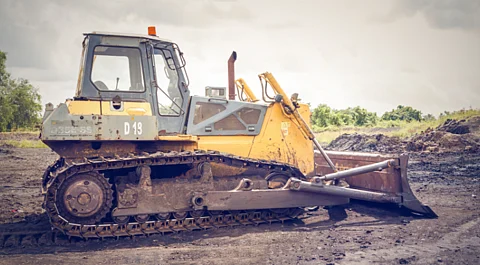

The construction industry is undergoing a technological revolution, with new tools and software emerging to drive efficiency and improve productivity on job sites. One of the most impactful technologies in this transformation is equipment tracking software.
These digital tools are playing a pivotal role in optimizing fleet management, reducing downtime, and ensuring that construction operations run smoothly and efficiently.
As construction projects become more complex, managing equipment effectively has never been more crucial. With high operational costs, tight project deadlines, and the need for better resource allocation, construction companies are turning to equipment tracking solutions.
In this post, we’ll explore how construction equipment tracking software is driving efficiency in the construction industry and what the future holds for this technology.
Construction projects often rely on a wide range of heavy machinery and equipment, each playing a critical role in various stages of the project. However, managing these assets efficiently can be a challenge, especially without real-time data. Traditional methods of equipment tracking, such as spreadsheets or manual logs, are not only time-consuming but also prone to errors.
Equipment tracking software addresses these issues by providing real-time visibility into equipment usage, location, maintenance schedules, and performance. By consolidating all this data into a single platform,companies like Clue help streamline operations, improve decision-making, and reduce operational inefficiencies.
One of the most significant advantages of equipment tracking software is real-time monitoring. Through GPS and telematics, equipment can be tracked at all times, providing construction managers with up-to-the-minute data on location, usage, fuel consumption, and overall performance. This real-time insight allows for immediate adjustments and better decision-making.
For example, construction managers can quickly identify underutilized equipment or equipment that is being overused, leading to better allocation of resources. This level of visibility also helps to ensure that equipment is not left idle for long periods, which can lead to unnecessary costs.
Another key benefit of equipment tracking technology is its ability to predict maintenance needs before they lead to expensive breakdowns. Clue equipment tracking software tracks various metrics such as engine hours, fuel consumption, and performance indicators to provide early warnings of potential issues.
This predictive maintenance approach allows companies to address problems before they result in costly downtime, ensuring equipment remains in optimal working condition.
Efficient equipment utilization is a cornerstone of a profitable construction business.Equipment tracking software helps improve equipment utilization by offering real-time visibility into where each piece of equipment is being used and how often.
With this data, managers can make better decisions about equipment allocation, ensuring that machinery is used to its full potential.
By improving utilization rates, companies can reduce the need to rent additional equipment, which further reduces project costs.
A study by FMI Corporation found that construction companies that use equipment tracking technology report a 15% improvement in equipment utilization, leading to significant cost savings.
The integration of construction equipment tracking software goes beyond simple tracking. With advanced data analytics, these systems provide valuable insights into equipment performance, fuel efficiency, and operational trends.
This data can be used to optimize equipment usage, reduce waste, and improve overall fleet management.
For example, by analyzing fuel consumption data, construction companies can identify patterns of excessive fuel use and make adjustments to improve fuel efficiency.
Additionally, the ability to analyze equipment data over time allows for better long-term planning. Companies can identify when it’s time to replace aging equipment or when more frequent maintenance is needed, helping to avoid costly emergency repairs and keeping projects on schedule.
As construction technology continues to evolve, the future of construction equipment tracking software looks even more promising. The next generation of equipment tracking solutions will integrate advanced technologies such as:
Artificial Intelligence (AI): AI will enable smarter, automated decision-making based on real-time data, helping managers optimize fleet operations and reduce operational costs.
Internet of Things (IoT): IoT-enabled equipment will provide even more detailed performance data, allowing for greater monitoring and control. These devices will communicate with Clue tracking software to provide insights into machine health and performance.
Autonomous Equipment: The rise of autonomous construction equipment, such as self-driving bulldozers and excavators, will be integrated with equipment tracking software to provide even more precise monitoring and maintenance capabilities.
Construction equipment tracking software is no longer just a luxury, it's a necessity for modern construction operations. By providing real-time monitoring, predictive maintenance, and data-driven insights, these solutions are revolutionizing the way construction companies manage their fleets.
The ability to optimize equipment usage, reduce downtime, and make informed decisions has a direct impact on the bottom line, helping companies stay competitive in a fast-evolving industry.
As technology continues to advance, the role of equipment tracking will become even more critical in driving efficiency and innovation in construction. By embracing these digital solutions today, construction companies can position themselves for success in the future.
